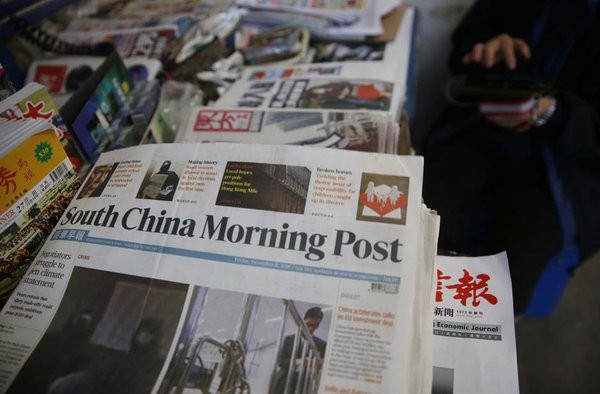In one of its first moves as the new owner of the South China Morning Post (SCMP), Alibaba Group Holding Ltd. removed the paywall on the newspaper's online and mobile editions in a bid to generate more traffic.
"Starting from last night, SCMP.com is free to read," the Hong Kong-based Post announced on its website on Tuesday.
"The Post is blazing a new trail again by giving readers free access to its online and mobile editions," said Yonden Lhatoo, a senior editor at the SCMP, citing the newspaper as being the first to launch an online edition in the city.
The move to make content free, which Alibaba hinted at in December the previous year, is a contrast to recent rise of paywalls among media companies around their content.
"A global community of China stakeholders will demand insightful and trusted news and commentaries from a within-the-region perspective," said Tammy Tam, editor-in-chief of the SCMP, in a statement Tuesday after the acquisition was completed.
Alibaba also assured readers that SCMP, which will be listed as Armada Holdings Ltd., will retain its independence and that its move to free online content is meant to satisfy the appetite for a more varied coverage of China.
Analysts say the purchase also indicates Alibaba's desire to use peripheral media assets in generating more ads to push traffic to its e-commerce platforms and expand its presence in the entertainment sector.
SCMP.com, which is visited by more than 2.5 million users monthly, is one of recent acquisitions by Alibaba, including the Hong Kong editions of Esquire, Elle and Cosmopolitan.
"This move is all about driving traffic and helping sellers close more transactions," Muzhi Li, an analyst at Arete Research Asia Ltd., told The Wall Street Journal.
"If you cannot access content, you cannot see ads," Li said.
SCMP Group's revenue in 2014 reached 1.24 billion Hong Kong dollars ($159.9 million). Alibaba's revenue in its fiscal year ended in March 2015 was $12.3 billion.
Analysts also foresee a challenge for Alibaba to overcome suspicion that Beijing will seek to influence its coverage.
"As a news brand, a lot could be lost," said David Bandurski, a researcher at the University of Hong Kong's China Media Project. "If they sink it, that's not good for Alibaba as a media product."
The Post has been inaccessible in mainland China since March 3, before the start of China's annual legislative session, according to GreatFire.org, which monitors online censorship in the country.
On early Wednesday, the SCMP's servers appeared to be down for readers outside China, but the site was back up again later in the evening.
A spokesman said that they were still investigating the cause of the blackout as of Wednesday night.
Alibaba isn't the first Internet company whose founder has had an appetite for media.
In 2013, Amazon founder Jeff Bezos bought the Washington Post and has since taken on a hands-on approach with a focus on customer experience.



























